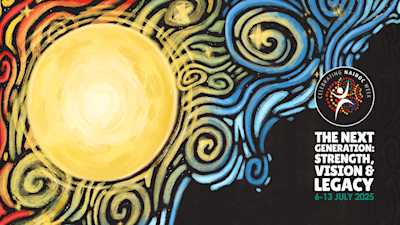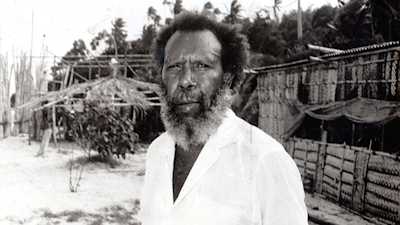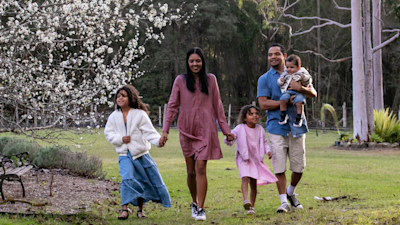Reconciliation in the West celebrates Aboriginal and Torres Strait Islander Culture and Identity to support Reconciliation in South Australia.
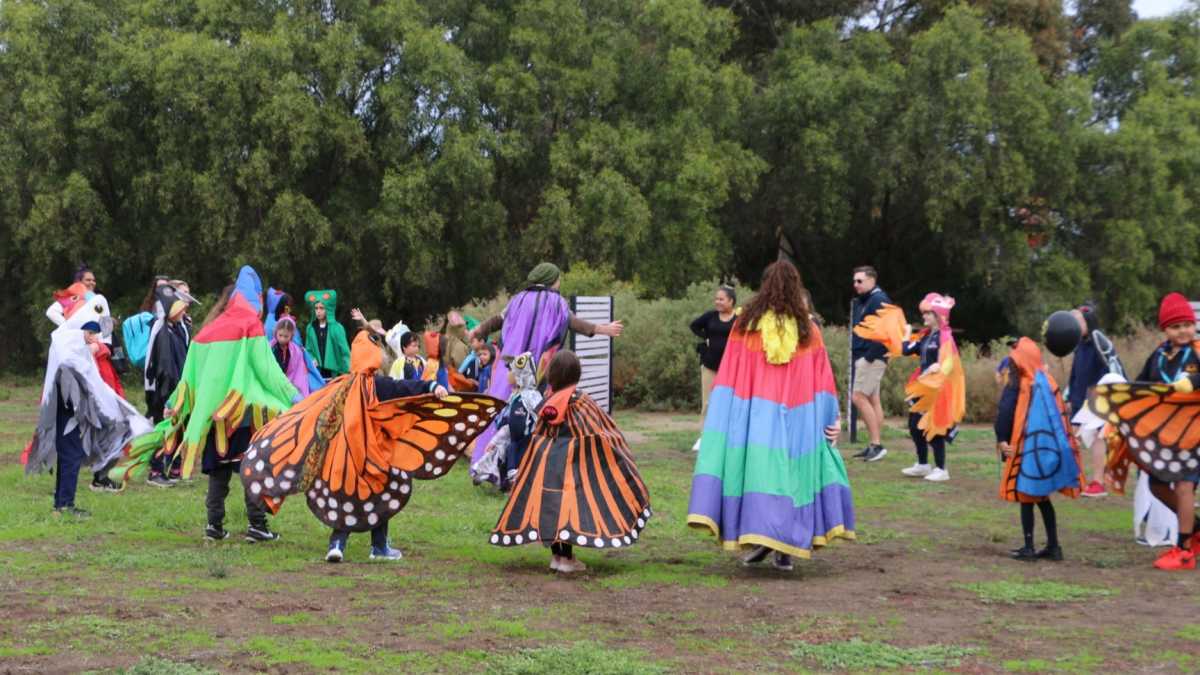
Image: A large group of adults and children outdoors dancing in costume at a Rec in the West event.
Life Without Barriers’ South Australian teams came together during National Reconciliation Week to celebrate the 10th anniversary of Reconciliation in the West at Taoundi Aboriginal College in Port Adelaide.
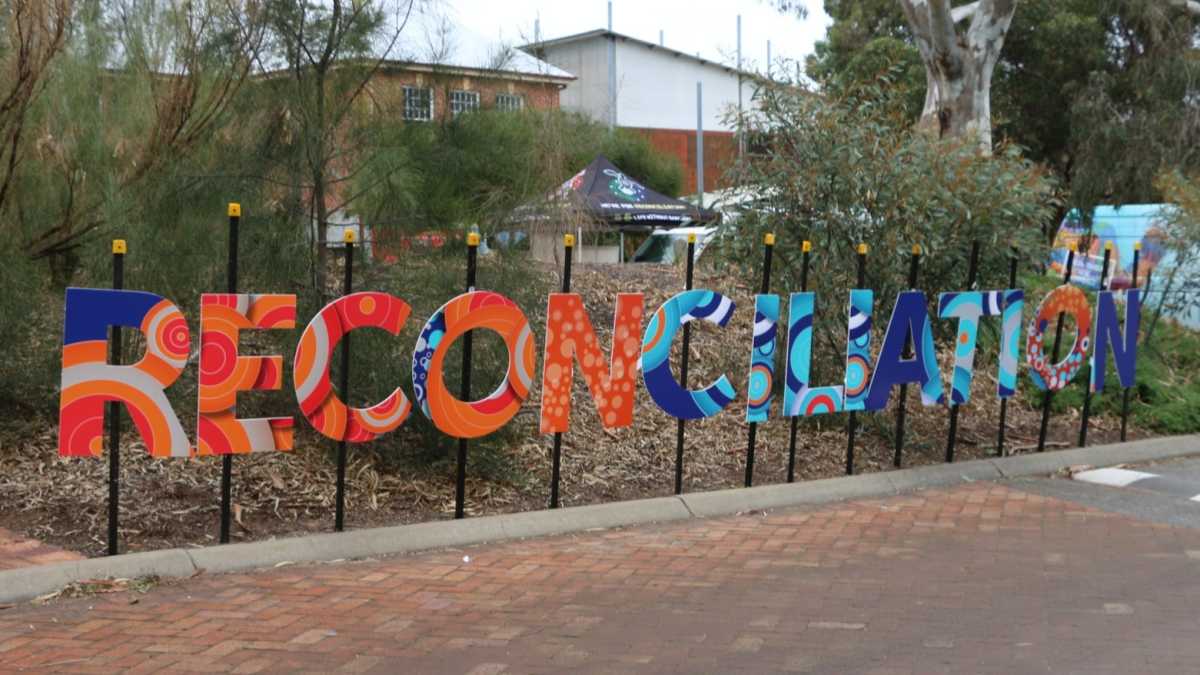
Our Child Youth and Family and Disability Supported Independent Living teams kept everyone fed with a delicious BBQ. Our Mental Health team organised a free op shop with donations from Life Without Barriers' employees. Not to be outshone, the Alcohol and Other Drugs team hosted an interactive educational activity, our Living Arts team ran interactive activities highlighting Aboriginal culture and our Lifestyles Team Leader provided music inspired by Aboriginal artists.
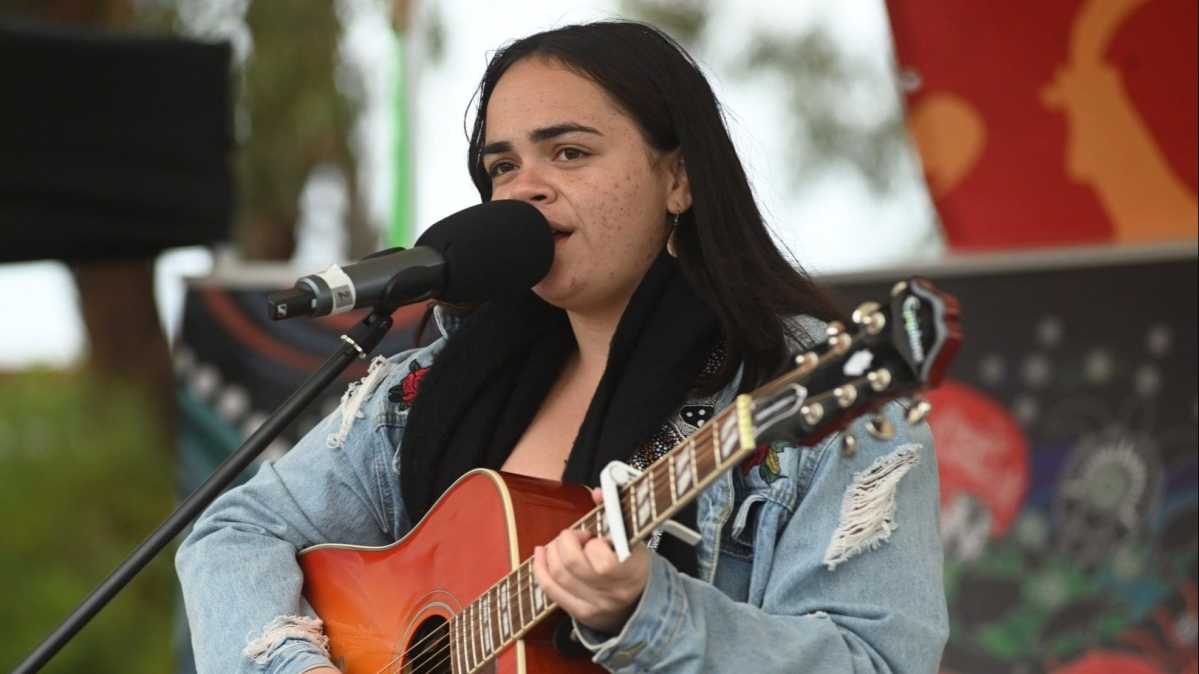
Image: Image of a young Aboriginal woman with shoulder-length brown hair wearing a denim jacket and playing the guitar, provided by Catherine Leo Photography.
An Aboriginal map of Australia was displayed, and people were encouraged to show where they were from by placing a sticker on their country. Regional Operations Manager Deborah Milford recalls a moment when the importance of National Reconciliation Week hit home to her.
A group of eight children had come up to the map with their carers. Their Carer said only two of the children knew who their mob was. Deborah told the other six children to put a dot wherever they wanted because this is their country.
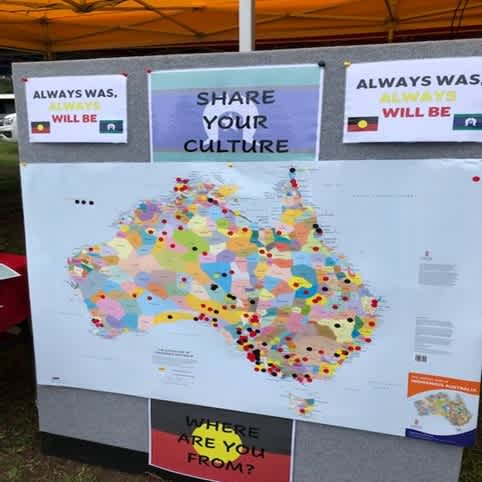
“We have such a long way to go in the fight for equity and social justice for our First Nations People. We still have more children in care than when the stolen generations were identified, there is still extreme hardship, racism and inequity, and the impact of intergenerational trauma is palpable.
"Reconciliation is about each person being accountable."
"In my home country of New Zealand, we say Kia Kaha which means “Stay Strong” and keep fighting, because as a collective we are stronger we can Be Brave and Make Change,” said Deborah.
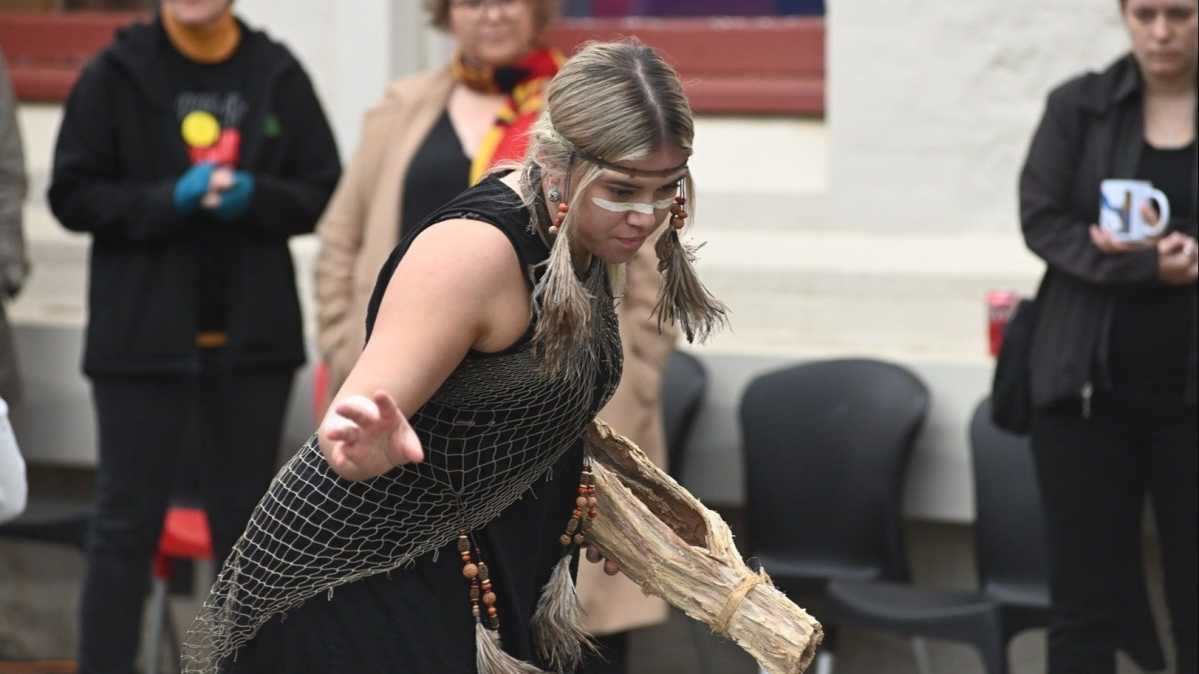
Image: Image of a young Aboriginal woman wearing face paint and a black dress with woven material dancing, provided by Catherine Leo Photography.
This year’s Reconciliation in the West was attended by over 300 school children and many hundreds of people from the community. Attendees enjoyed singing, a colour run, storytelling, weaving sessions, language classes and much more, which created an amazing opportunity for all to share and celebrate a rich and beautiful culture.
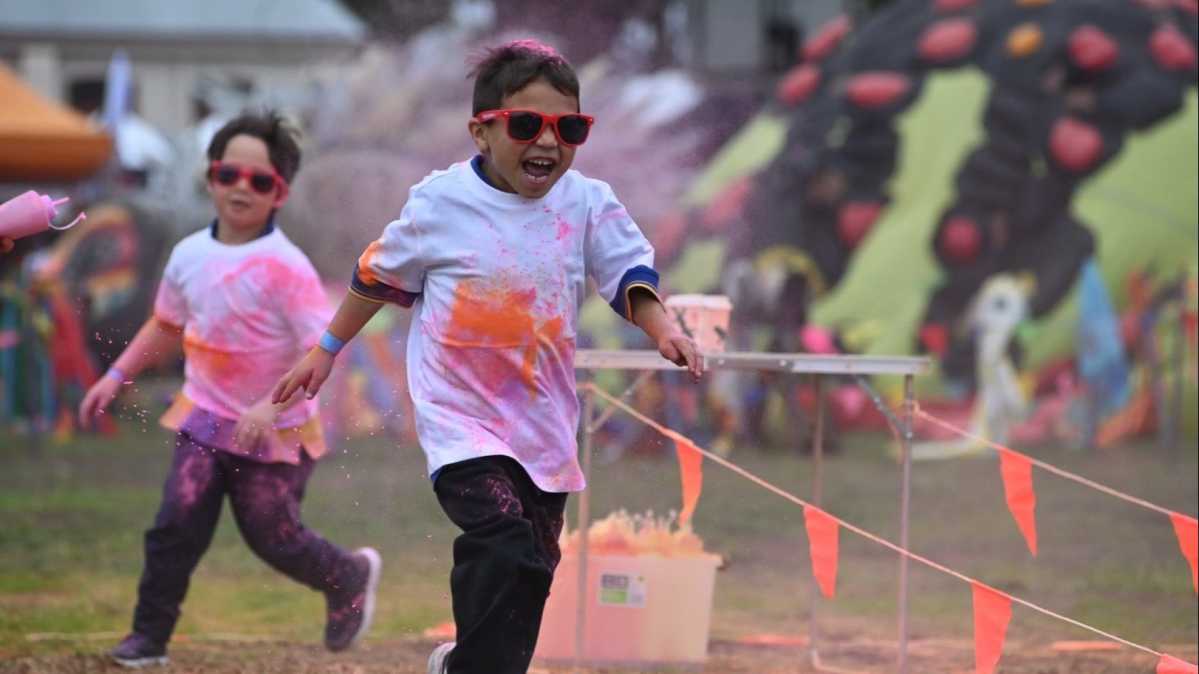
Image: Image of a child wearing a white shirt with coloured powder splashed across it during a colour run, provided by Catherine Leo Photography.
You can find more great photos on our Facebook page!
